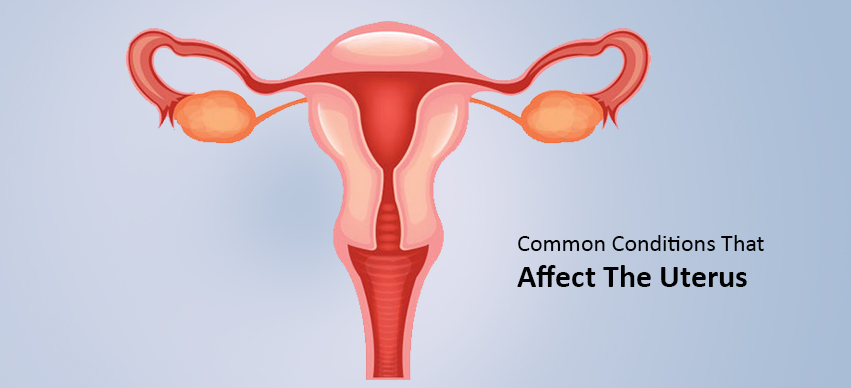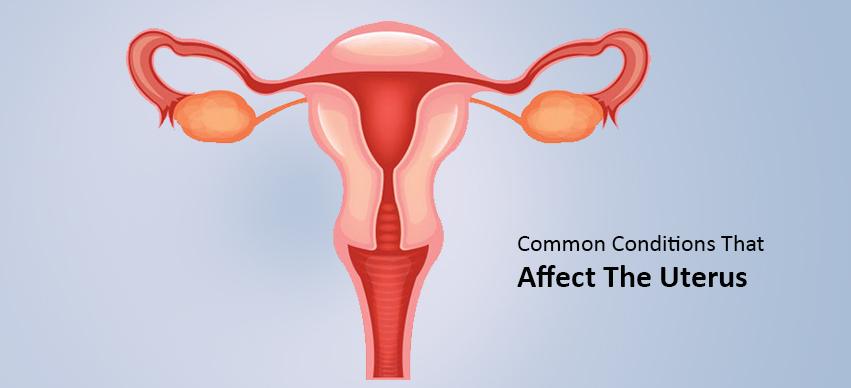Nanoparticle Therapy – An Emerging Cancer Treatment
5 Min Read


The female reproductive system is a delicate and sometimes tricky entity. There are a number of things that can go wrong, and in some cases, you will not even be aware of the problem until you decide to start a family, or when you go for your regular check-up.
However, in other cases, the condition presents itself in painful and life-altering ways. Statistics show that at least 30% of women globally face severe reproductive health issues. This has ranged from severe menstrual pain to infertility or a high number of miscarriages.
So, if you are experiencing some kind of pain, discomfort, or change in your body, you will need to know what you could possibly be facing. Recognizing the symptoms and seeing a doctor right away is the best way to deal with the condition. We thought we would look at the most common issues that women face, what their symptoms are, and how you can treat them effectively.
This is a common condition faced by millions of women globally. Simply put, endometriosis occurs when the tissue that should be lining the uterus grows on the outside of it. It can be found on the ovaries, fallopian tubes, and even the intestines.
It leads to extreme pain for most women and is responsible for at least 30% of women battling to conceive. If you are concerned that you suffer from endometriosis, you can refer to this Endometriosis Guide from Medicinal Technologies for more information.
In many cases, women do not have any symptoms, and only find out when they try to conceive.
However, other symptoms include;
Without an official diagnosis, you would not be able to diagnose endometriosis. You will need to undergo laparoscopic surgery whereby you will need to be put under anesthesia for your physician to check your abdominal cavity for growth.
Although this is incurable, doctors do have ways of managing the pain and reducing the symptoms of endometriosis. Essentially, when you control your hormones and lower your estrogen levels, you will be able to reduce the effects.
They will recommend;
These are benign growths on the uterus that usually occur during the childbearing years of a woman's life. They are somewhat common, and usually do not evolve into cancer. They also go by the names of leiomyomas or myomas.
Fibroids vary in size and can range from a seedling, an almost undetectable size to an enlarged version that can expand the uterus.
In most cases, women do not even know that they have fibroids due to the fact that they display no symptoms and do not really impact the uterus. If they do get big, it could contribute to weight gain and general discomfort.
However, other symptoms are as follows;
Fibroids are usually detected during regular gynecological visits and are picked up due to the change in the shape and size of the uterus. Your doctor will then send you for an ultrasound or even lab tests if it is a severe case.
Because of the generally low impact of fibroids, physicians usually do not recommend any treatment, and the fibroids usually disappear by themselves. In more extreme cases, they will recommend menstruation reducing medication to shrink them, or even non-invasive procedures.
As the name suggests, this condition is associated with excessive and constant bleeding from the uterus, at all times during the monthly cycle. This will become heavier during the period, and in certain cases, women have been known to go through a tampon or sanitary pad every hour.
In most cases, this is caused by hormonal problems in a woman, but can also be due to pregnancy complications, thyroid problems, or cysts and fibroids. This can naturally lead to iron deficiencies and anemia.
Your physician will first do a pregnancy test, and an iron test to determine your iron levels. They will then choose to do an ultrasound, and should that not pick anything up, you will be sent for an endometrial biopsy. This is a simple procedure done in your doctor's rooms where they can remove a piece of your uterus lining.
A doctor can also choose to do a hysteroscopy, whereby they insert a camera into the uterus to check for irregularities.
Your doctor will recommend a treatment based on the extremities of your case. They could recommend the following;
Endometrial cancer is the type of cancer that starts in the uterus. It can begin in the lining and slowly spread to the rest of the uterus. Although the causes of uterine cancer are unknown, risk factors include endometrial overgrowth (hyperplasia), obesity, very early onset of menstruation (before age 12), menopause only beginning after age 55, estrogen therapy, taking tamoxifen, radiation to the pelvis, or a family history of uterine cancer.
The general symptoms of uterine cancer are;
Your doctor will want to conduct a pap smear and pelvic exam to ascertain whether you have cervical cancer. You will then be sent for a transvaginal ultrasound, followed by a biopsy, which will be the ultimate test to determine whether you have cancer.
Surgery is the most standard treatment and the most successful one in the early stages. A total hysterectomy is recommended to treat the onset early. If cancer spreads or is at a more advanced stage, chemotherapy, or even hormone therapy is recommended.
If you are experiencing any of these symptoms, do not panic, and do not immediately think the worst. In many cases, it is not as serious as one imagines and can be easily treatable. We have only mentioned 4 scenarios, but there are a number of other conditions that could be impacting you. If your symptoms are consistent and even getting worse, make an appointment to see a doctor immediately.